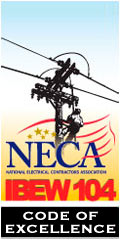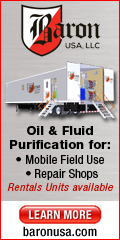
| Past Issues/Subscribe | Employment | neppa.org | Legislative Update | Advertise | July 2014 |

|
Is the electric industry the next to be redesigned by technology? Over the past two decades we have seen personal communication, mass media and other industries retooled by the quick adaption of technology.
Ten years ago most of us were still reading the newspaper, mailing our bills and using our home phone as primary ways to communicate. Each of these industries was faced with the need to make dramatic and quick changes for their survival.
What about our industry? We have been observing smart grid technology advance so quickly that what was smart ten years ago is an Edsel today. Maybe only Mark Kelly and I get that one. But, the fast growing distributive generation industry adds even greater strains to our system and remind us of the need for change to the US electric industry. Some are going as far as saying that the overhaul of the entire electric grid is necessary for modernization.
So let me ask you some speculative questions:
Is grid security likely to improve or become more vulnerable with more automation of the transmission systems to a smart grid level? The trend has been that when industries have gone to computerized (online, cloud, etc.) pathways there is usually a period of vulnerability where not all access points or viral attacks are accounted for. The problem is that hackers and electronic disruptors are constantly working on new ways to garner access and wreak havoc. Building protections are almost outdated when they are implemented. So, in some ways, a "dumb" grid is less hack-able.
But if we can get past the period of vulnerability, what are the potential benefits of modernizing the grid to a more intelligent/interactive system? The obvious benefits are real time information and response and the potential to be proactive instead of reactive to potential system faults or failures. These benefits should also improve cost efficiency and power management. There will be logic issues and other glitches, but overall it would be beneficial.
What are other implications for distribution utilities? This is where some very dangerous pathways can be followed. All electric distributors are grappling with the issues related to distributed generation. Recently, articles have appeared about the very real problems Hawaii is facing with the insistence of customers to be net generators on their systems. The demand has created such significant conflicts that they have actually capped annual permits for home conversions. How we accommodate this phenomenon in the near future and the desire of state and federal governments to expedite the conversion to net metering and other distributed generation models could severely damage the model for municipal electric utilities.
If programs are not created and managed locally, then the ability to control your business flow will be compromised. Could your utility end up pushing power back into the transmission grid and what are the rules for the transmission companies in how they accommodate this? Is the ISO New England market prepared for the implications of this process? My fear is that no real conversations are occurring about this in New England and the folks of ISO will just throw together a new set of rules that do not account for the two million New England public power customers.
We as public power need to do a full analysis on what the future holds for us. Potential solutions to these issues are being posed to the Department of Energy and concepts like expanding the oversight of ISOs and RTOs to have control over distribution or creating new organizations like them that solely are responsible for distribution are out there. These are horrible ideas, but there are a lot people who stand to make a great deal of money if they go forward. This is why we need to conduct our research and come up with potential options that do not undermine our business model which has been able to adapt and serve consumers for over 100 years.
|


